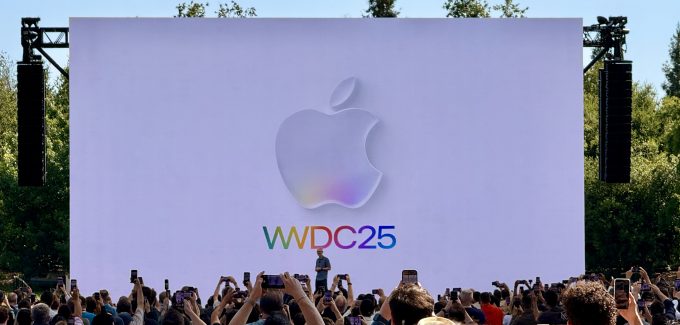-
Jan 23, 2025, 11:20 am8.1k ptsInsanely Great Special Content
Special ContentThe world of competitive gaming, known as esports, has experienced explosive growth in recent years. What once started as a niche hobby with local tournaments has now evolved into a global phenomenon, complete with packed stadiums, multi-million dollar prize pools, and millions of passionate fans. Esports has not only changed the way we perceive gaming, but it has also had a significant impact on the broader gaming industry, influencing game development, streaming platforms, and even traditional sports culture. Join http://genome10k.org and let's explore how esports rose to prominence and its profound impact on the gaming world.
The Beginnings of Esports
The Early Days: From Arcades to LAN Parties
The concept of competitive gaming is not new. In the early 1980s, arcade games like Space Invaders began hosting high-score competitions, creating the first semblance of esports culture. As the gaming landscape evolved, LAN parties in the 1990s brought players together for competitive matches in games like Quake and StarCraft. These small gatherings were the seeds of a larger competitive movement, setting the stage for esports as we know it today.
The Birth of Online Competitions
The rise of internet connectivity in the late 1990s and early 2000s revolutionized competitive gaming. Games like Counter-Strike and Warcraft III started hosting online tournaments, allowing players from around the world to compete without needing to be in the same physical location. This accessibility played a crucial role in fostering a community of gamers passionate about honing their skills and challenging opponents across the globe.
The Rapid Growth of Esports
The Emergence of Esports Leagues
The 2010s marked a turning point for esports, as the industry saw the establishment of professional leagues and major tournaments. Games like League of Legends, Dota 2, and Call of Duty launched competitive circuits that formalized esports into structured events, akin to traditional sports leagues. The creation of events such as the League of Legends World Championship and The International drew massive audiences, both live and online, showcasing the immense potential of esports as a spectator sport.
The Rise of Streaming Platforms
The growth of esports is closely tied to the rise of streaming platforms like Twitch and YouTube Gaming. These platforms made it possible for anyone to watch live matches, follow their favorite teams, and engage with the community. The accessibility of live streaming has helped esports reach new audiences and build a fanbase that rivals that of traditional sports. Viewership numbers for major tournaments have soared, with some events attracting millions of concurrent viewers.
Esports as a Mainstream Entertainment
Massive Prize Pools and Sponsorships
One of the most striking aspects of esports is the massive prize pools offered at major tournaments. Dota 2's The International has consistently offered prize pools exceeding $30 million, thanks to crowdfunding by the game's community. This financial backing, combined with corporate sponsorships from major brands like Red Bull, Intel, and Nike, has turned esports into a lucrative industry for players, teams, and organizers alike.
The Rise of Esports Celebrities
Esports has given rise to a new breed of celebrity-professional gamers. Players like Faker from League of Legends and Ninja from Fortnite have achieved worldwide fame, attracting millions of followers on social media and streaming platforms. These esports stars have become influential figures, helping legitimize gaming as a professional career and inspiring aspiring players to follow in their footsteps.
Stadium Events and Global Reach
Esports tournaments have transcended online platforms and entered real-world venues. Major events are now held in stadiums, with thousands of fans attending in person. Venues like the Staples Center in Los Angeles and the Bird's Nest Stadium in Beijing have hosted major esports competitions, highlighting the global reach and cultural impact of competitive gaming.
The Impact of Esports on the Gaming Industry
Shaping Game Development
The rise of esports has had a significant impact on how games are developed. Many developers now design their games with esports in mind, focusing on balance, competitive fairness, and spectator-friendly features. Games like Valorant, Overwatch, and Rocket League were created with the intent of fostering competitive play, incorporating mechanics and features that make them ideal for professional competition.
Growth of Multiplayer and Team-Based Games
The popularity of esports has led to a surge in the development of multiplayer and team-based games. Games that encourage cooperative gameplay and teamwork are well-suited for competitive play, leading developers to focus on titles that foster team dynamics. This trend has influenced the broader gaming landscape, with more players gravitating toward games that offer both casual and competitive experiences.
Influence on Game Updates and Balance
For esports games, regular updates and balance changes are crucial to maintaining a fair and engaging competitive environment. Developers of popular esports titles like League of Legends and Counter-Strike: Global Offensive work closely with the competitive community to ensure the game remains balanced and exciting for both players and viewers. This continuous feedback loop between players and developers has set a new standard for how games are supported post-launch.
Esports and Traditional Sports: Convergence and Differences
Collaborations Between Esports and Traditional Sports
Esports and traditional sports have increasingly intersected in recent years. Traditional sports franchises like Paris Saint-Germain and FC Barcelona have invested in esports teams, while the NBA 2K League and FIFA eWorld Cup have brought video game versions of popular sports to a competitive level. This convergence is helping bridge the gap between gaming and mainstream sports culture.
Differences in Audience Engagement
While traditional sports often emphasize physical prowess, esports focuses on mental acuity, reflexes, and strategy. Esports also benefit from a younger audience that is accustomed to digital platforms and interactive experiences. Unlike traditional sports broadcasts, esports viewers can interact with streamers and fellow fans in real-time, making the experience more engaging and community-driven.
The Future of Esports
The Growth of Collegiate and High School Esports
Collegiate and high school esports are on the rise, with institutions across the world offering esports scholarships and forming teams. This grassroots growth is helping to legitimize esports as a career path and creating new opportunities for young players to pursue professional gaming.
Esports in the Olympics?
There has been ongoing discussion about including esports in the Olympics, with proponents arguing that competitive gaming requires skill, discipline, and training, similar to traditional sports. While there is still debate, the potential inclusion of esports in future Olympic events would represent a major milestone for the industry.
Virtual Reality and the Evolution of Esports
With advancements in virtual reality (VR) and augmented reality (AR), the future of esports could involve more immersive experiences. VR esports, where players physically move and compete in a virtual environment, could be the next big step, merging physical activity with digital competition.
Conclusion: A Game-Changer for the Gaming Industry
The rise of esports has transformed the gaming industry, turning gaming from a hobby into a mainstream form of entertainment and a viable career path. Esports have influenced game development, streaming culture, and even traditional sports, bringing competitive gaming to the forefront of popular culture. As esports continue to grow, with larger audiences, bigger prize pools, and increasing recognition, they are set to shape the future of entertainment in exciting and innovative ways. Whether you're a casual gamer, an aspiring pro, or a dedicated fan, esports offer something for everyone, and their impact on the gaming world is only just beginning.
Trending Today on MacHash
MacHash is your real-time Apple news aggregator, delivering the latest headlines on Apple, Mac, iPhone, iPad, and iOS from top sources across the web.
As a powerful content discovery platform, MacHash continuously curates breaking news, product announcements, software updates, reviews, and industry insights related to Apple Inc. and its ecosystem.
MacHash helps you stay informed on everything from macOS and iOS developments to Apple Watch, AirPods, and the latest in tech and app innovation.
Access MacHash from your desktop or mobile device to explore, follow, and share the most trusted Apple news all in one place.















